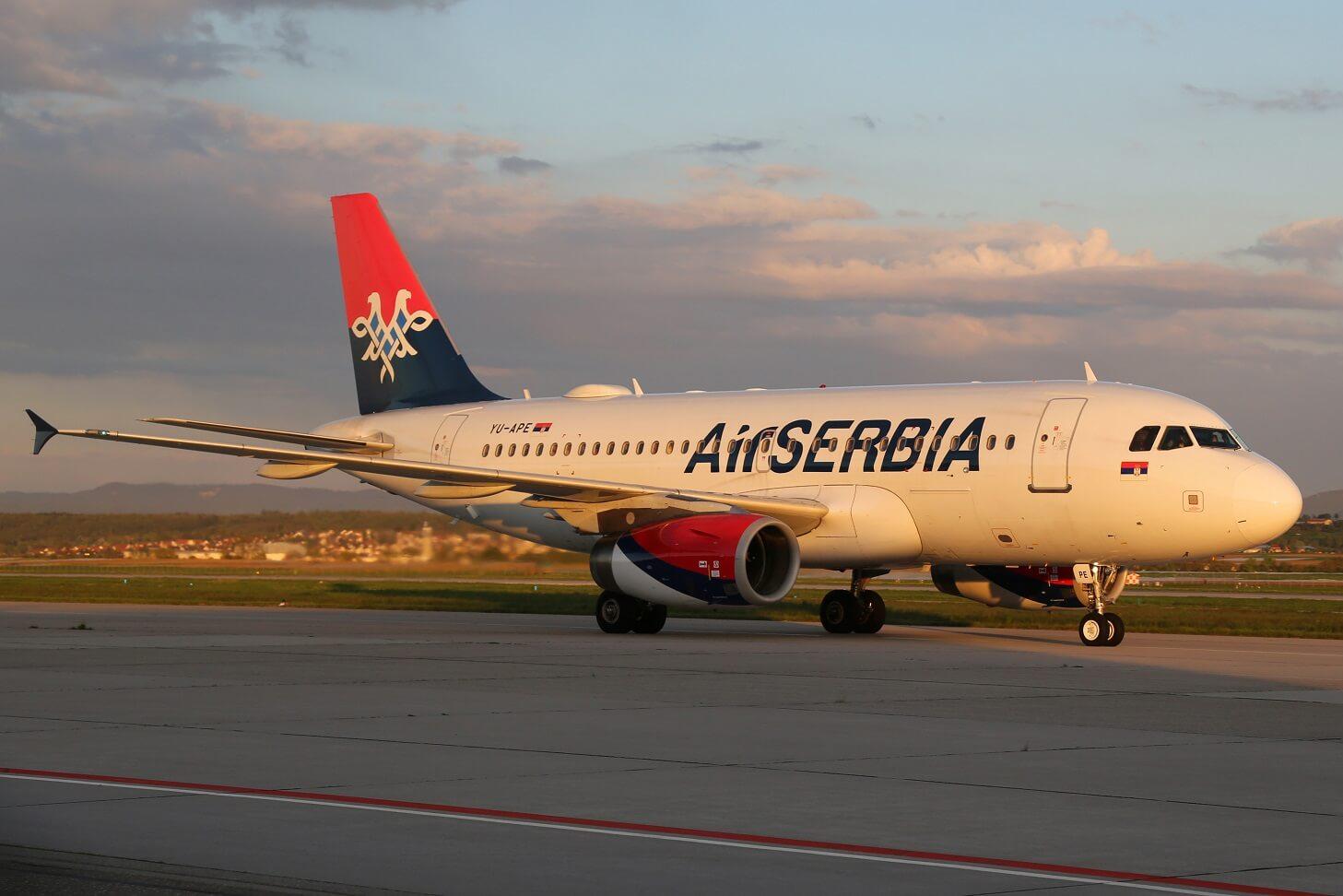Air Serbia: Turmoil at Belgrade airport sparks concern

Air Serbia, the national airline of Serbia, is facing significant challenges at Belgrade Airport as operations become increasingly chaotic. The situation has raised concerns about the airline's ability to maintain efficient services and uphold passenger satisfaction. This article explores the current state of affairs at Belgrade Airport, the factors contributing to the turmoil, and the potential implications for Air Serbia and travelers.
Belgrade Airport has been grappling with a series of issues that have created a state of turmoil for Air Serbia. Reports suggest that the airport's infrastructure, including terminal facilities and ground handling services, is struggling to cope with the growing demands of air travel. Delays, long queues, and disrupted services have become recurrent problems, casting a shadow over the overall passenger experience.
Factors contributing to the turmoil at Belgrade Airport
Several factors have contributed to the current state of affairs at Belgrade Airport. The significant increase in passenger traffic, both domestic and international, has placed strain on the airport's capacity. Additionally, the rapid expansion of Air Serbia's route network and fleet has added to the operational challenges, necessitating comprehensive infrastructure improvements to accommodate the airline's growth.
Furthermore, staffing issues and inadequate resource allocation have impacted the efficiency of ground handling services at the airport. Insufficient personnel, lack of training, and a shortage of necessary equipment have led to service disruptions, further exacerbating the situation for Air Serbia and its passengers.
Implications for Air Serbia
The turmoil at Belgrade Airport poses various implications for Air Serbia. The airline's reputation and brand image may suffer due to the deteriorating passenger experience resulting from delayed and disrupted services. Prolonged waiting times, missed connections, and inadequate customer support can undermine customer loyalty and deter potential passengers from choosing Air Serbia for their travel needs.
Operational inefficiencies and the negative passenger experience may also impact the airline financially. Delays and disruptions can lead to increased costs, including compensation claims, and reduced revenue as passengers may seek alternative travel options. Additionally, a decline in passenger numbers due to the airport's struggles may hinder Air Serbia's ability to achieve its growth targets and expand its market presence.
To overcome the challenges at Belgrade Airport and ensure a smoother operation for Air Serbia, a comprehensive and coordinated approach is necessary. The airport authorities, in collaboration with the airline, need to prioritize infrastructure upgrades, including terminal expansion and enhanced ground handling facilities. Adequate staffing levels, improved training programs, and optimized resource allocation are vital to enhancing operational efficiency and maintaining passenger satisfaction.
Collaboration between Air Serbia, airport authorities, and relevant stakeholders is crucial in addressing the issues faced by Belgrade Airport. Regular communication, sharing of data and insights, and joint efforts to streamline processes can lead to meaningful improvements. Furthermore, ongoing monitoring and feedback mechanisms should be implemented to track progress, identify areas for further enhancement, and ensure sustained improvements over time.
Rebuilding passenger confidence at Air Serbia
Rebuilding passenger confidence should be a top priority for Air Serbia. Proactive communication, transparent updates regarding ongoing improvements, and dedicated customer support services can help restore trust and mitigate the impact of the current turmoil. The airline should focus on delivering a consistent and reliable travel experience, addressing passenger concerns promptly, and exceeding expectations wherever possible.
The challenges faced by Air Serbia at Belgrade Airport are indicative of the growing pains experienced by airlines and airports during periods of expansion. However, with a strategic and collaborative approach, the issues can be addressed to restore operational efficiency and passenger satisfaction. Air Serbia, along with the airport authorities, must prioritize infrastructure upgrades, improve ground handling services, and rebuild passenger confidence through effective communication and dedicated customer support. By proactively addressing the challenges at Belgrade Airport, Air Serbia can enhance its position in the market and continue to provide quality services to its passengers.
Latest posts
Flight delays and cancellations in March 2025
Check which flights were delayed in March 2025 – you may still be entitled to claim up to 600 € in compensation.
Flight delays and cancellations in April 2025
Check which flights were delayed in April 2025 – you may still be entitled to claim up to 600 € in compensation.
Flight delays and cancellations in June 2025
Check which flights were delayed in June 2025 – you may still be entitled to claim up to 600 € in compensation.












